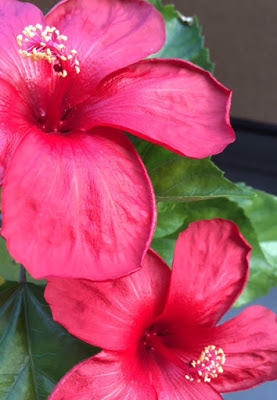This December
This week marked the 75th anniversary of the attack on Pearl Harbor. In this complicated year, the political winds are harsh, and yet this August, President Obama visited Hiroshima and later this month Prime Minister of Japan will visit the USS Arizona Memorial at Pearl Harbor—see this AP coverage here.
The Asia-Pacific Journal’s Japan Focus, just published “Japan, Pearl Harbor and the Poetry of December 8th””by Jeremy Yellen and Andrew Campana.
Many poems composed in Japan in 1941 in the weeks after the Pearl Harbor attack were full of nationalism and vengeance. But poems of shock and disapproval were also penned. The article by Yellen and Campana shares originals, translations and accompanying context of poetry composed as patriotic propaganda, as well as poetry composed in resistance or private dissent. Poems included in this post are shared with permission from Asia-Pacific Journal Japan Focus.
This Japan Focus article and the poems in translation shared within would, I believe, be of interest to both high school English and history classes.
_______________________
The following poem by Chōku Shaku conveys the sense of victimization of Japan by colonial powers and justification for aggression.
Poem by Chōku Shaku, translation by Jeremy Yellen and Andrew CampanaJapaense original: 神怒り かくひたぶるにおはすなり今し斷じて討たざるべからず Kami ikariKaku hitaburu niOhasu nariImashi danjiteUtazaru bekarazu The wrath of the godsWith absolute wildnessHas drawn nighWithout hesitationWe cannot but strike
Yet the following poem, kept hidden until several years after Japan’s surrender in 1945, reveals distress over the attack on Pearl Harbor.
Poem by Shigeru Nanbara, translation by Jeremy Yellen and Andrew CampanaJapaense original: 日米英に開戦すとのみ八日朝の電車のなかの沈痛感よ Nichi Bei-Ei niKaisen su to nomiYōka asa noDensha no naka noChintsūkan yo Only the attackOn America and EnglandExplains the sorrowPermeating the train carOn the morning of the eighth
And the below poem by Yukio Ozaki, compares the declaration of war and militarization as a “fool’s errand” akin to pressing on with a losing game of shogi.
Poem by Yukio Ozaki, translation by Jeremy Yellen and Andrew CampanaJapanese original: 詰手なき将棋をさしつつ勝ち抜くと嘯く人のめでたからずや Tsumete nakiShōgi o sashi tsutsuKachi nukuUsobuku hito noMedetakarazu ya A fool’s errandTo press on playing shogiDeceiving oneselfThat victory lies aheadDespite no hope of checkmate
And here is my own December poem, a tanka, for this #PoetryFriday—written amid these turbulent times, thinking of children and families in Aleppo, and hoping we may avert and resolve rather than escalate and fan the flames of conflicts and aggressions at home and afar.
This December
as north and south windsknock the neighborhood with gustsblasting right and leftthe balcony hibiscus opens one, two, three red blooms
© Holly Thompson All rights reserved.

The Asia-Pacific Journal’s Japan Focus, just published “Japan, Pearl Harbor and the Poetry of December 8th””by Jeremy Yellen and Andrew Campana.
Many poems composed in Japan in 1941 in the weeks after the Pearl Harbor attack were full of nationalism and vengeance. But poems of shock and disapproval were also penned. The article by Yellen and Campana shares originals, translations and accompanying context of poetry composed as patriotic propaganda, as well as poetry composed in resistance or private dissent. Poems included in this post are shared with permission from Asia-Pacific Journal Japan Focus.
This Japan Focus article and the poems in translation shared within would, I believe, be of interest to both high school English and history classes.
_______________________
The following poem by Chōku Shaku conveys the sense of victimization of Japan by colonial powers and justification for aggression.
Poem by Chōku Shaku, translation by Jeremy Yellen and Andrew CampanaJapaense original: 神怒り かくひたぶるにおはすなり今し斷じて討たざるべからず Kami ikariKaku hitaburu niOhasu nariImashi danjiteUtazaru bekarazu The wrath of the godsWith absolute wildnessHas drawn nighWithout hesitationWe cannot but strike
Yet the following poem, kept hidden until several years after Japan’s surrender in 1945, reveals distress over the attack on Pearl Harbor.
Poem by Shigeru Nanbara, translation by Jeremy Yellen and Andrew CampanaJapaense original: 日米英に開戦すとのみ八日朝の電車のなかの沈痛感よ Nichi Bei-Ei niKaisen su to nomiYōka asa noDensha no naka noChintsūkan yo Only the attackOn America and EnglandExplains the sorrowPermeating the train carOn the morning of the eighth
And the below poem by Yukio Ozaki, compares the declaration of war and militarization as a “fool’s errand” akin to pressing on with a losing game of shogi.
Poem by Yukio Ozaki, translation by Jeremy Yellen and Andrew CampanaJapanese original: 詰手なき将棋をさしつつ勝ち抜くと嘯く人のめでたからずや Tsumete nakiShōgi o sashi tsutsuKachi nukuUsobuku hito noMedetakarazu ya A fool’s errandTo press on playing shogiDeceiving oneselfThat victory lies aheadDespite no hope of checkmate
And here is my own December poem, a tanka, for this #PoetryFriday—written amid these turbulent times, thinking of children and families in Aleppo, and hoping we may avert and resolve rather than escalate and fan the flames of conflicts and aggressions at home and afar.
This December
as north and south windsknock the neighborhood with gustsblasting right and leftthe balcony hibiscus opens one, two, three red blooms
© Holly Thompson All rights reserved.

Published on December 08, 2016 22:07
No comments have been added yet.



